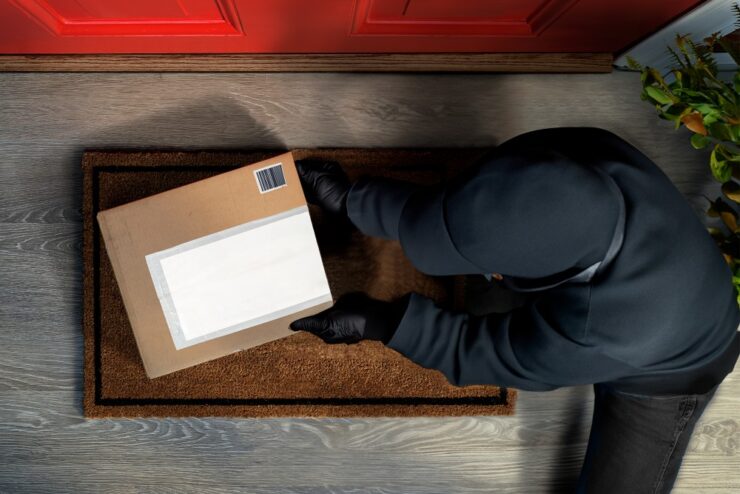Have you ever heard of something known as the Porch Pirate Index (PPI)? Probably not, but not because the PPI isn’t a real thing. It is very real. You’ve probably not heard of it because it’s brand-new. It was developed by Vivint Smart Home, a nationwide leader in home security and smart home installations.
Vivint designed the Porch Pirate Index (PPI) as a tool to help analyze and understand the prevalence of porch piracy throughout the U.S. To make the tool work, the company gathered and consolidated search volume data relating to porch piracy terms. They looked at things like ‘package theft’, ‘package lost’, and ‘package stolen’.
The data might mean nothing to you if you have never been a victim of porch pirates. But if you have lost packages to these common criminals, we are guessing you are curious to know just how big a problem porch piracy is.
Criminals Do Not Discriminate
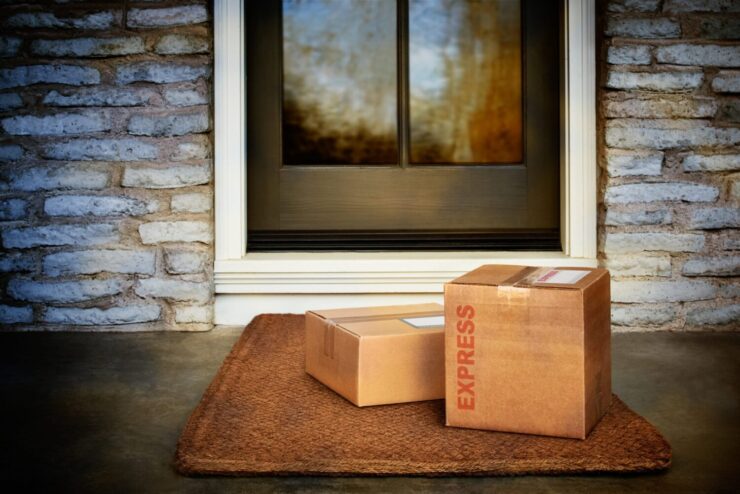
Numbers from 2021 suggest that upwards of 35.5 million American households are victimized by porch pirates every year. That represents roughly 14% of the adult population. Average losses are just under $157 per incident for a total of more than $5 billion lost annually.
Here’s the thing: criminals don’t discriminate. They do not care who lives in the houses they hit. They don’t care about their victims’ annual income, socioeconomic status, education level, or anything else. All they care about is swiping packages as fast as they can and getting away cleanly.
Where Porch Piracy Is Most Prevalent
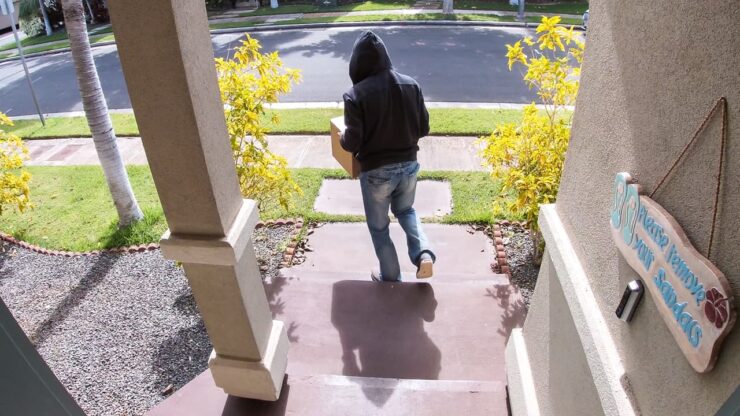
Although porch piracy is a universal crime not subject to discrimination, there are some places in the country where it is more prevalent than others. Vivint’s PPI demonstrates as much. For example, their data indicates that Vermont has the highest incidence of porch piracy among the states. But Vermonters also practice the most prevention strategies.
In terms of prevalence by city, St. Louis has the biggest porch piracy problem among all large cities in America. They have a PPI score of 100 based on 118 relevant searches per 100,000 residents. Rounding out the top five are:
- Jersey City, NJ – PPI score of 97.7
- Madison, WI – PPI score of 94.1
- Pittsburgh, PA – PPI score of 80.7
- Fremont, CA – PPI score of 84.9
If you live in one of those five cities, your chances of being victimized by porch pirates are higher than most other cities in the country. That does not necessarily guarantee you will get hit. It just means that the risk is real. As for the least affected cities, here are the top five:
- Houston, TX – PPI score of 16.4
- Phoenix, AZ – PPI score of 17.4
- Chesapeake, VA – PPI score of 20
- San Antonio, TX – PPI score of 20.6
- Corpus Christi, TX – PPI score of 21.3
To be fair, all these scores are based on Internet search data. In other words, Vivint analyzes what people are searching for online and then extrapolates from there. This is important to note because the PPI isn’t a scientifically conclusive tool. It can give us a good idea of what’s going on in the porch piracy world, but there is plenty of information the data doesn’t tell us.
A Crime of Opportunity
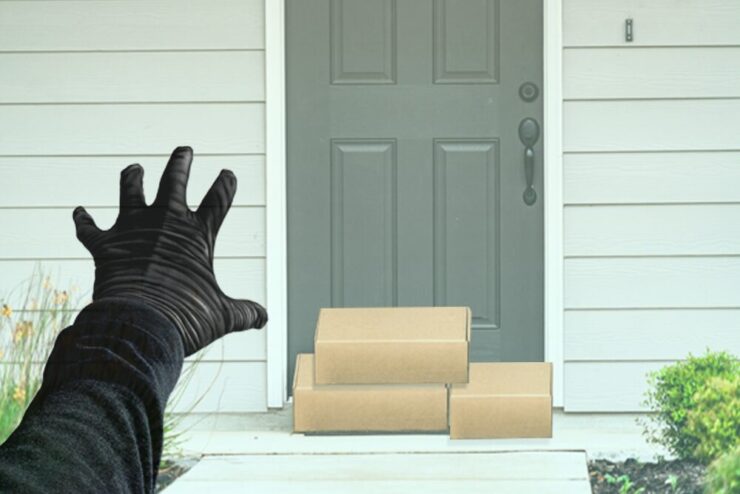
The reality of porch piracy is that it is a crime of opportunity. A few years ago, a group of enterprising criminals realized that there were plenty of opportunities to scope out neighborhoods in search of unprotected packages. They figured out that an explosion in online shopping only made those opportunities more lucrative.
Criminals looking for a quick score are tempted to target packages because:
- They can be snatched quickly.
- The packages tend to be high-value.
- Criminals don’t have to look hard to find them.
- Getting away with the crime is fairly easy.
All these things combined can make an opportunity too hard to resist. Even criminals not intending to steal packages can be overwhelmed by the temptation as they drive down the street. It is far too easy when they see packages left unattended and unprotected.
Prevention Is About Making It Hard
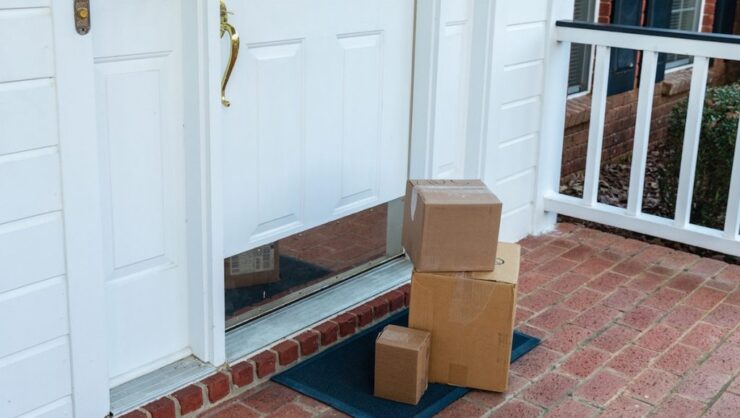
There is no longer any doubt that porch piracy is a legitimate problem both here and abroad. It has been talked about enough. A more important topic of discussion is how to prevent it from happening. Your best strategy is to make it as hard as possible for porch pirates to steal from you.
Regardless of any particular crime, the one thing all criminals have in common is their tendency to look for the easiest possible targets. By their nature, criminals take the easy way out. They look for the most vulnerable victims and then strike. If they were willing to do the hard work necessary to achieve their goals, they wouldn’t be criminals to begin with.
All of this suggests that making life hard on porch pirates increases the chances that they will leave you alone. Why put in a ton of work and risk getting caught when there are softer targets out there? Right? Absolutely. Do not be one of those softer targets.
A Multifaceted Approach Is Best
There isn’t a single strategy that can prevent porch piracy on its own. Therefore, it is best to utilize a multifaceted approach designed to cover every angle you can think of. For starters, you might consider having your packages delivered to a local package locker if you know there is no other way to keep them protected.
You should also consider installing a doorbell camera or separate video surveillance for those times when packages cannot be delivered to lockers. If you have a good relationship with your neighbors, perhaps you can arrange to have them receive packages for you. There are lots of options. You just need to use your imagination.
Meanwhile, Vivint Smart Home will continue utilizing its PPI to better understand porch piracy across the country. As their data so clearly demonstrates, porch piracy is a real problem that shows no signs of going away.

